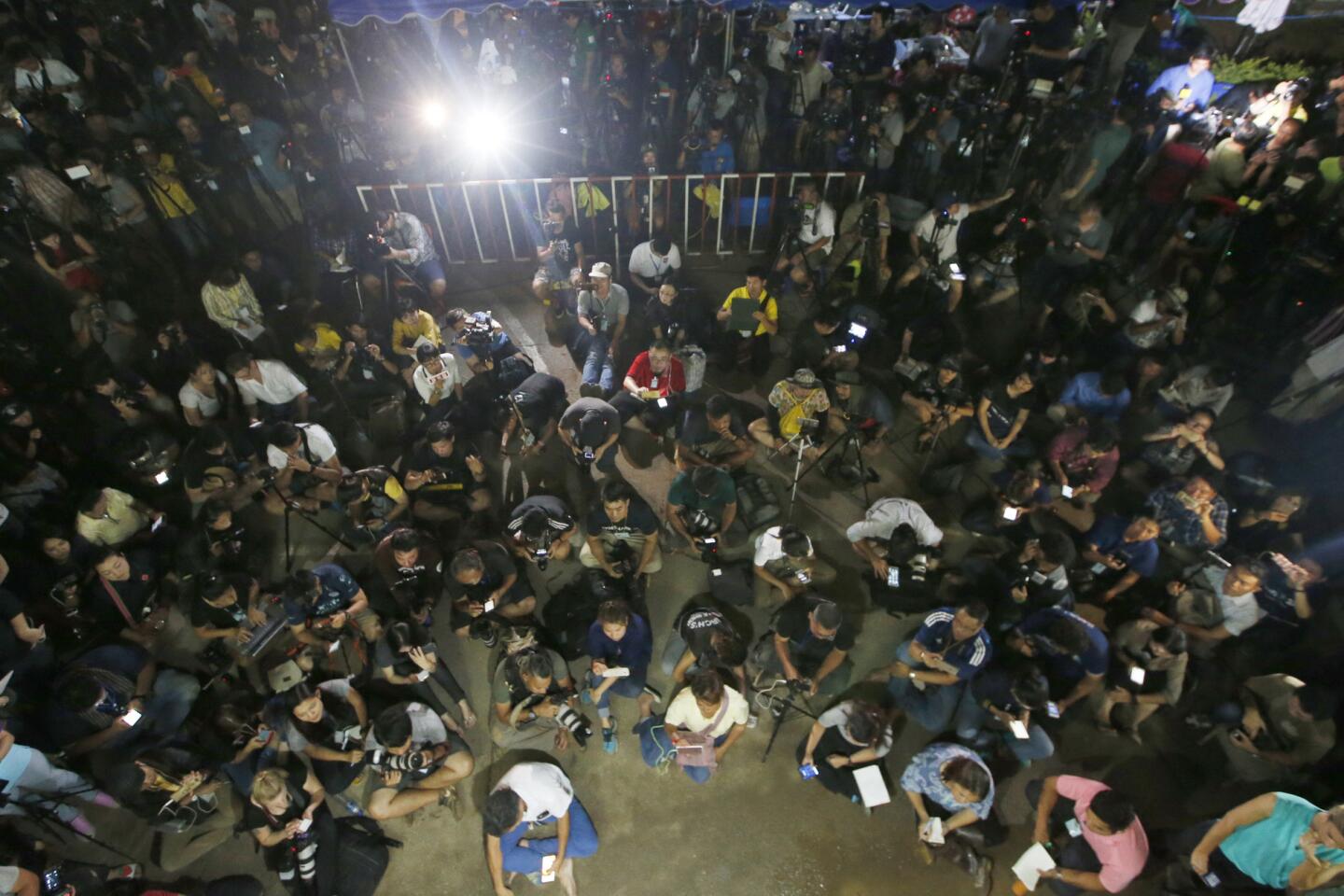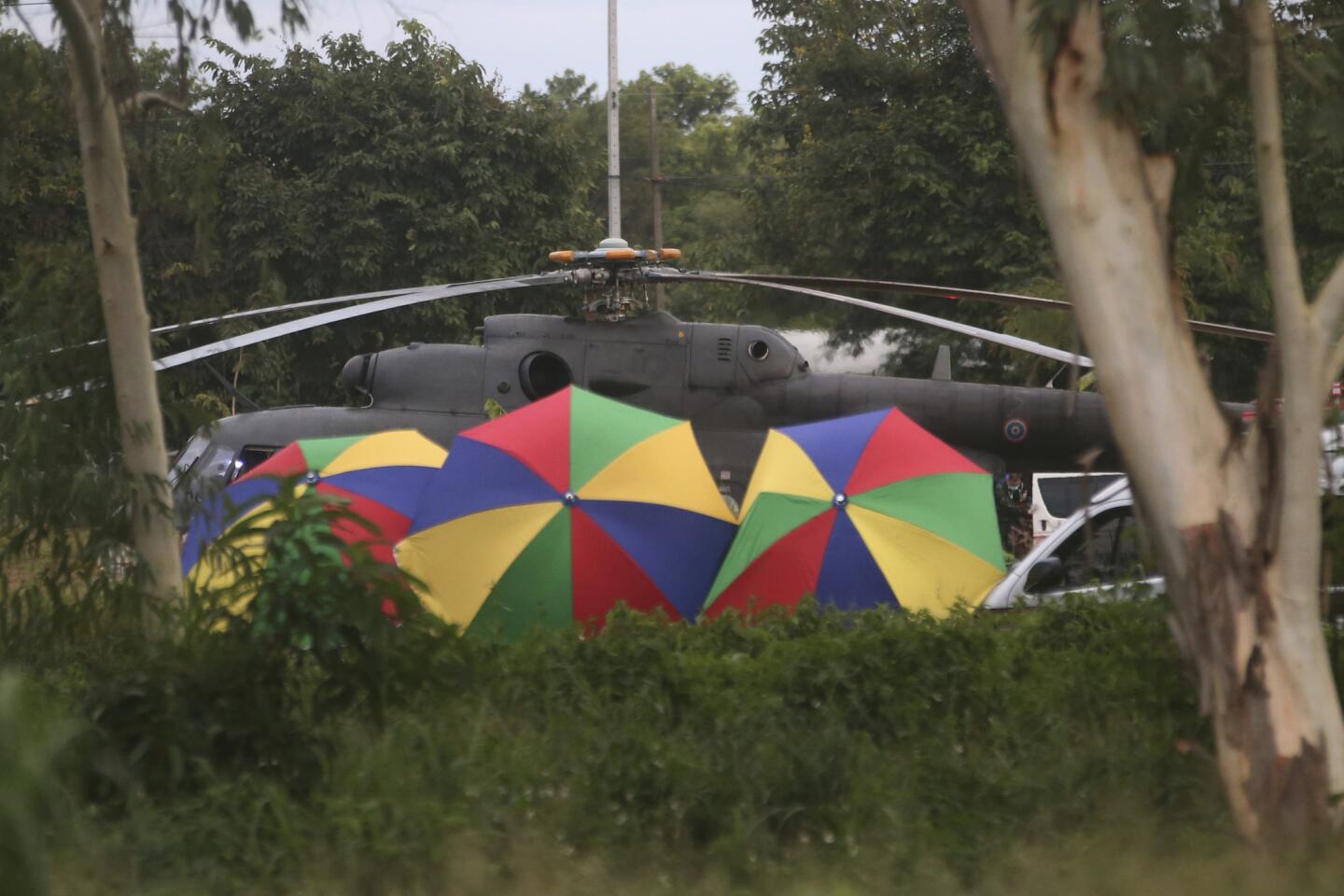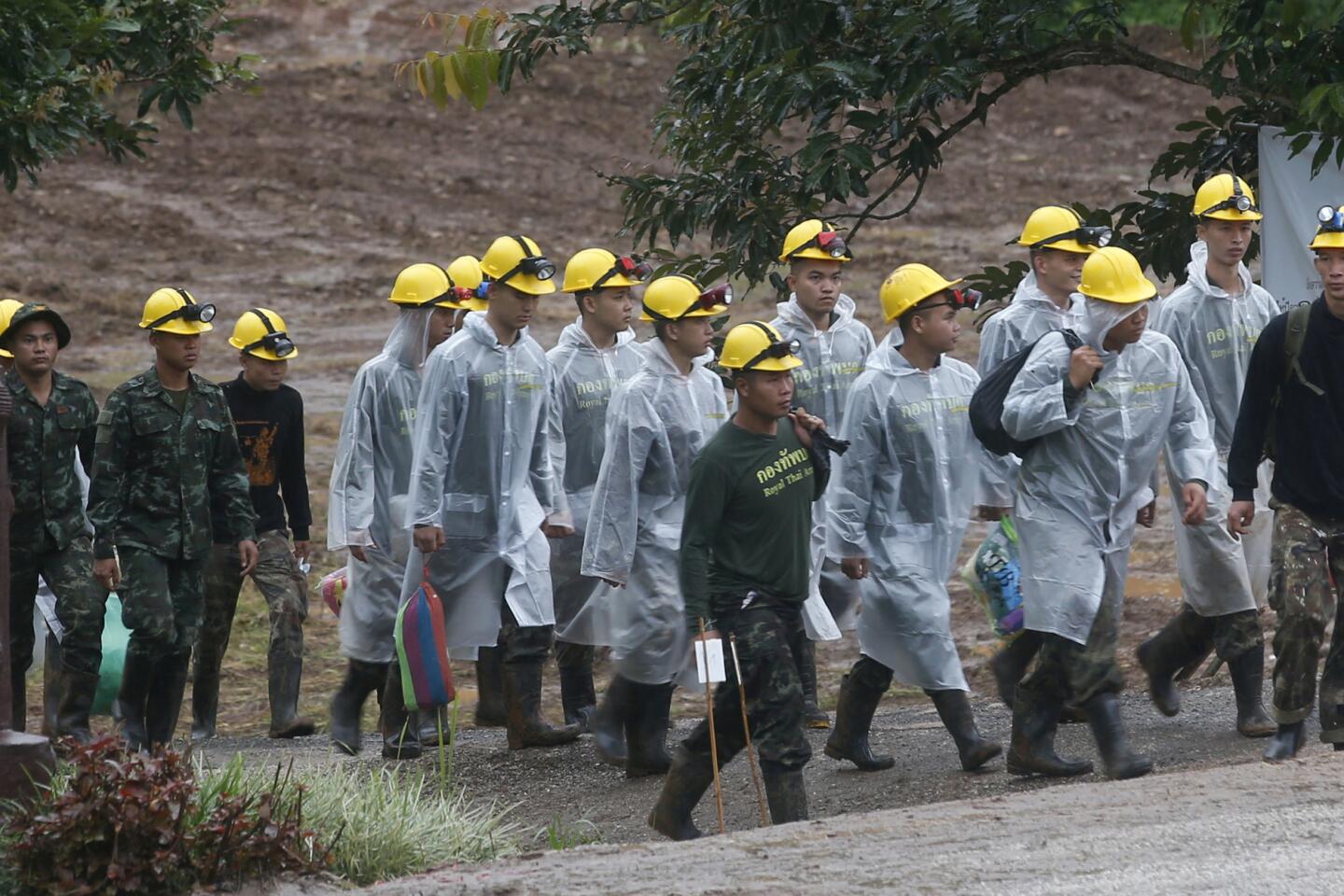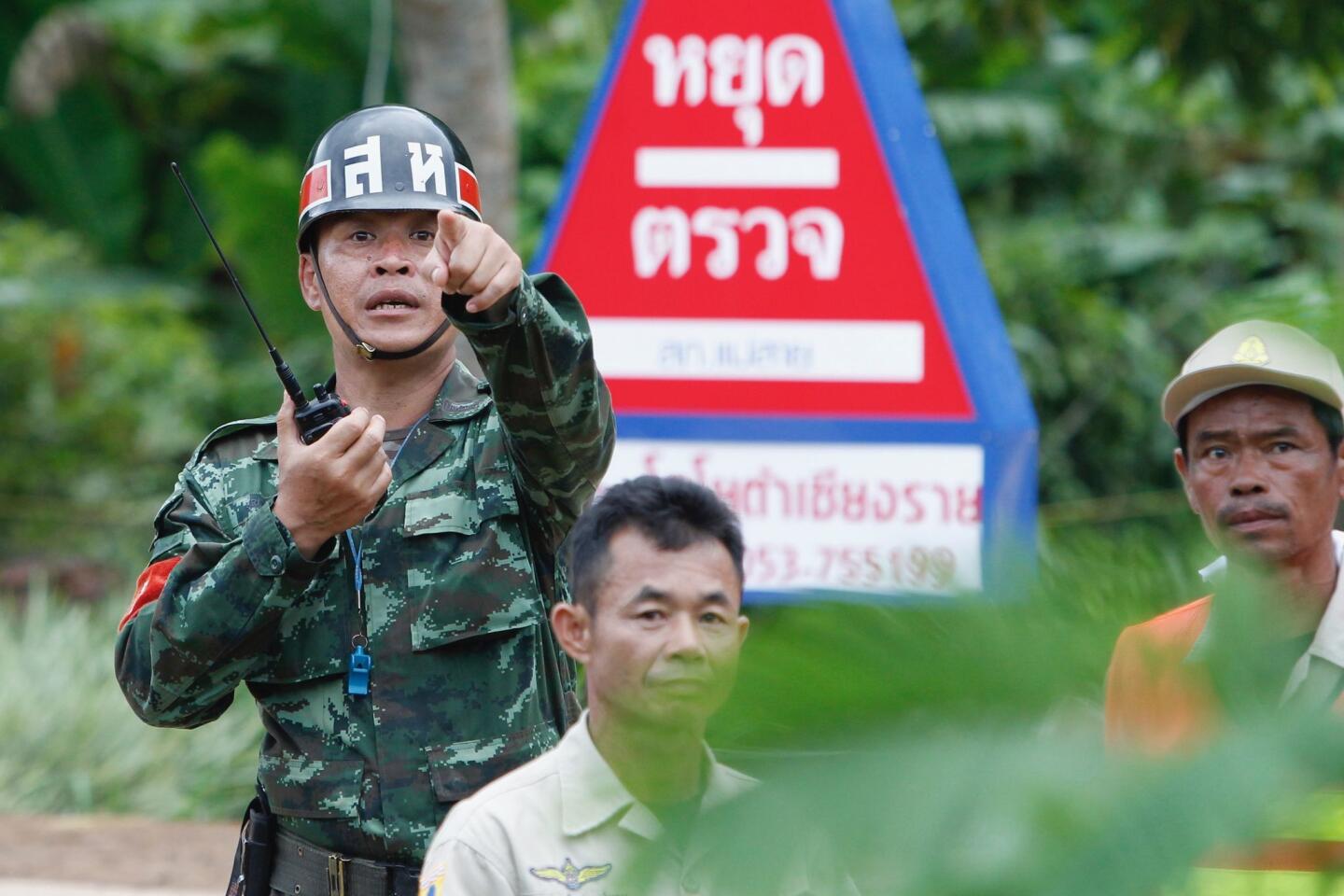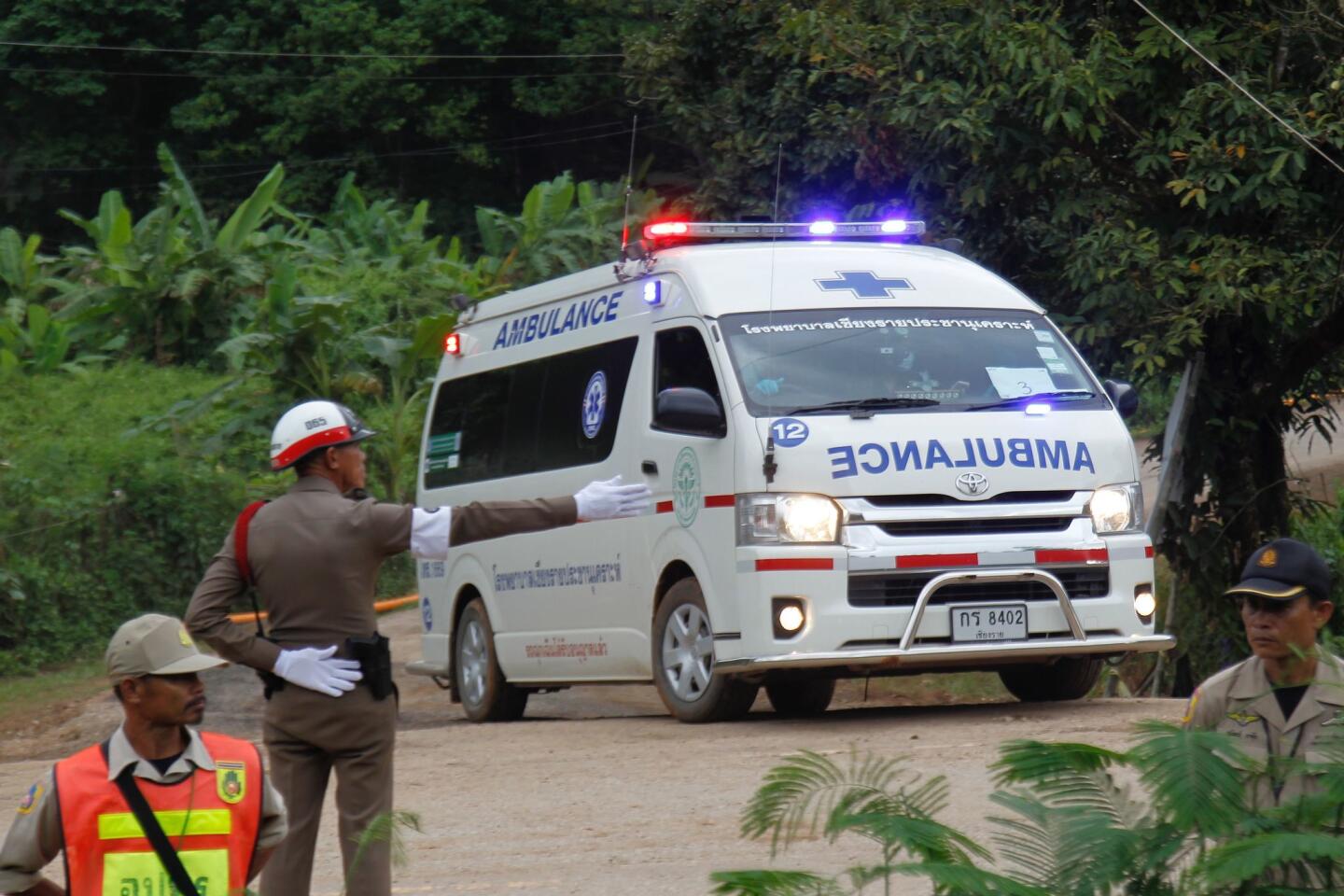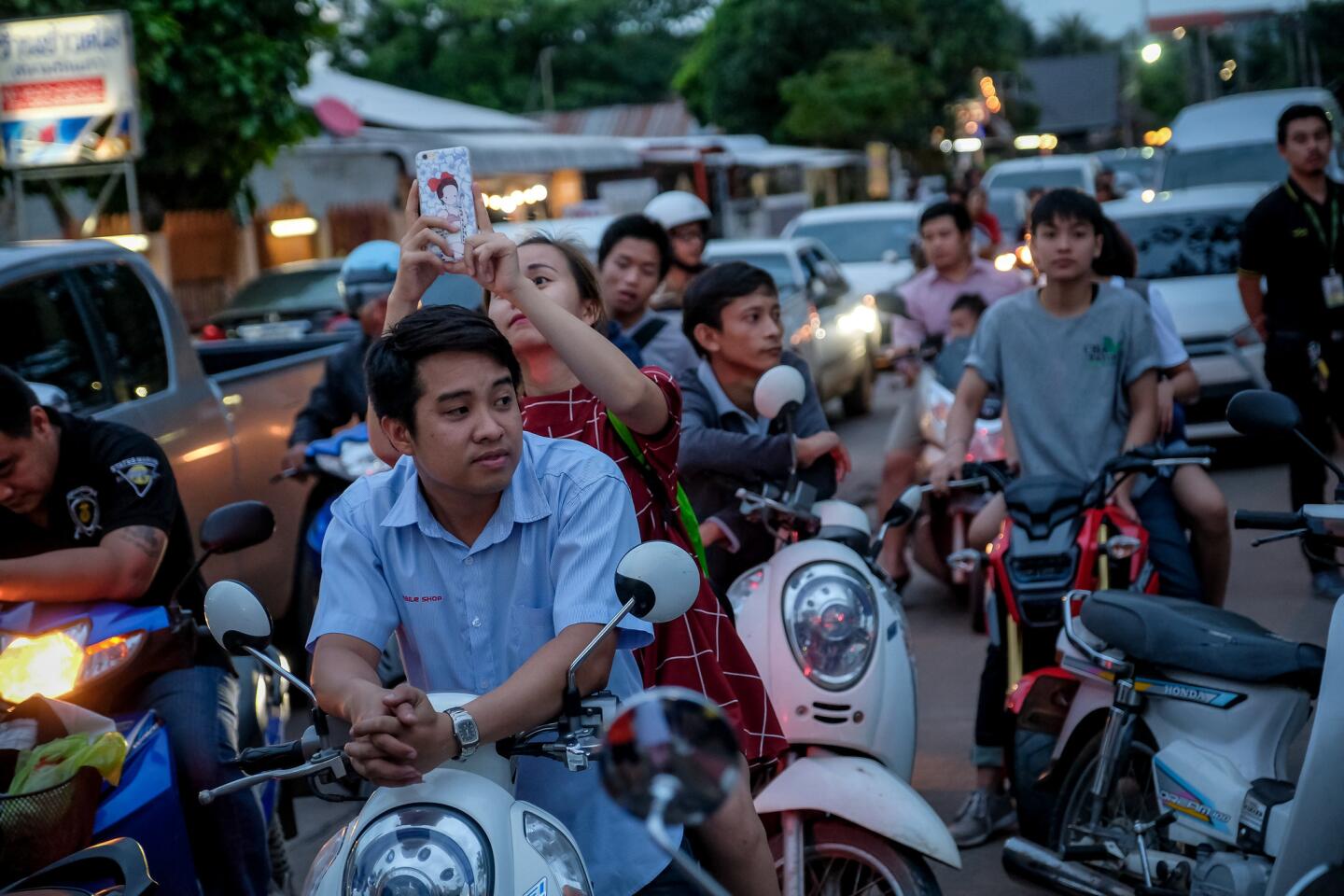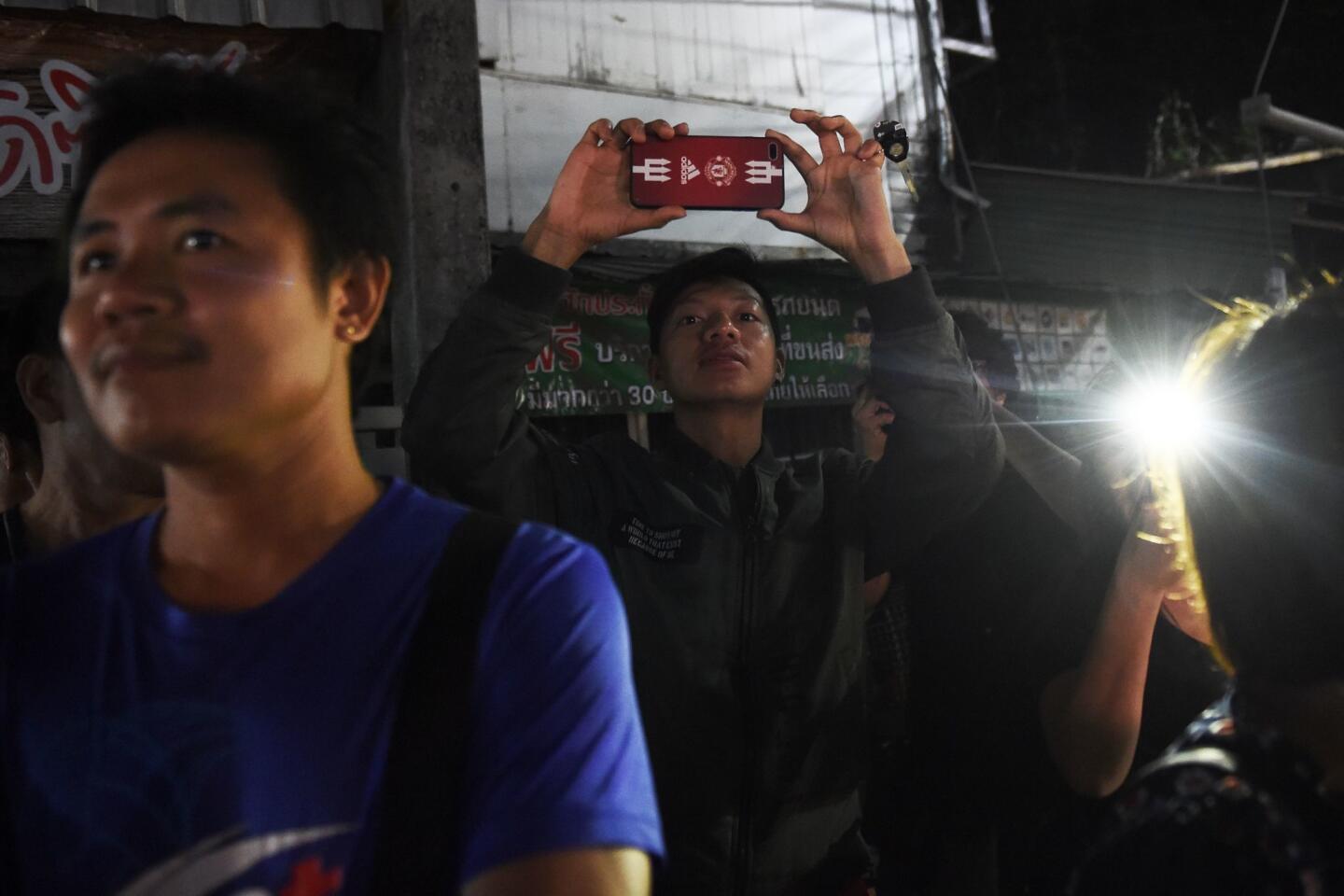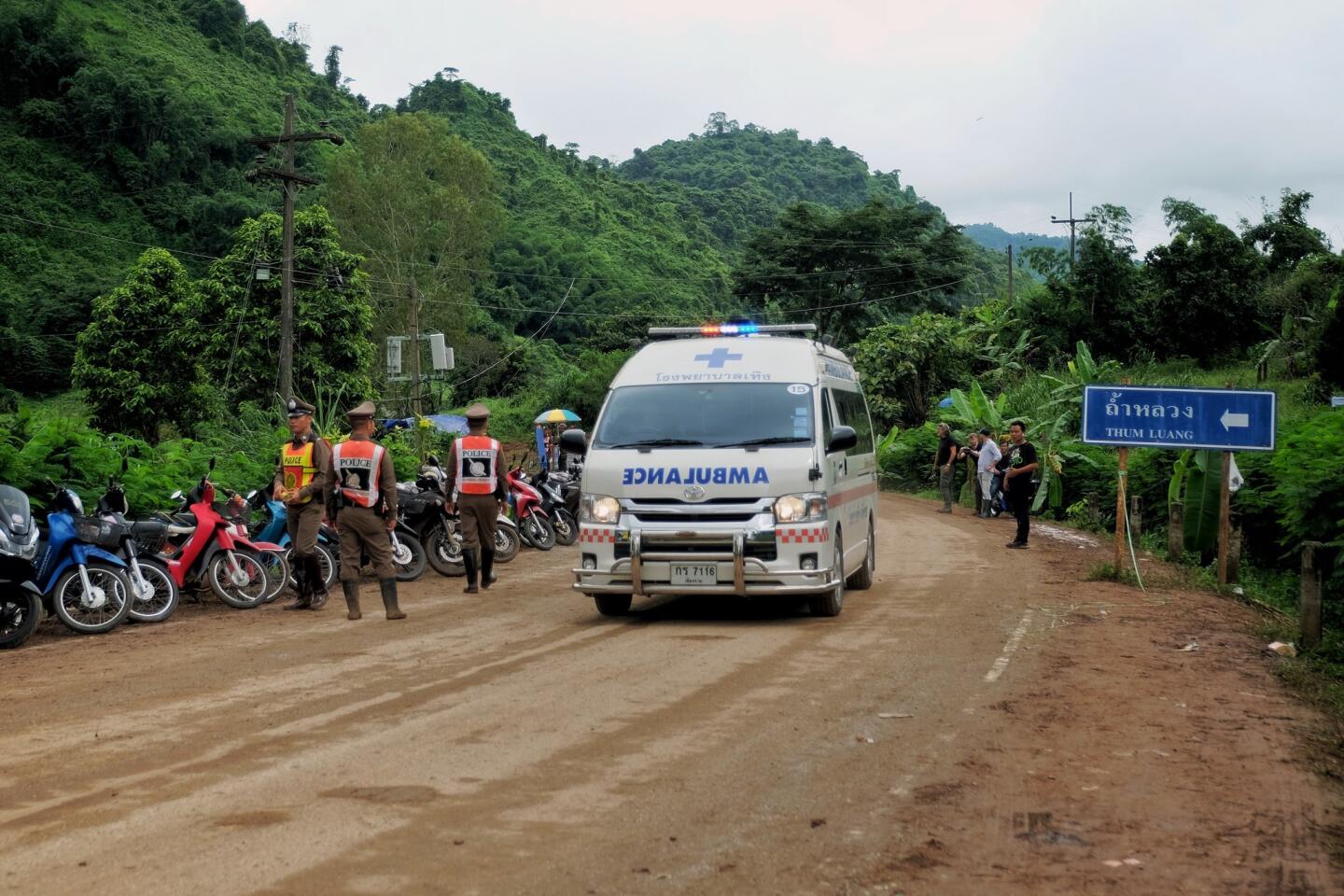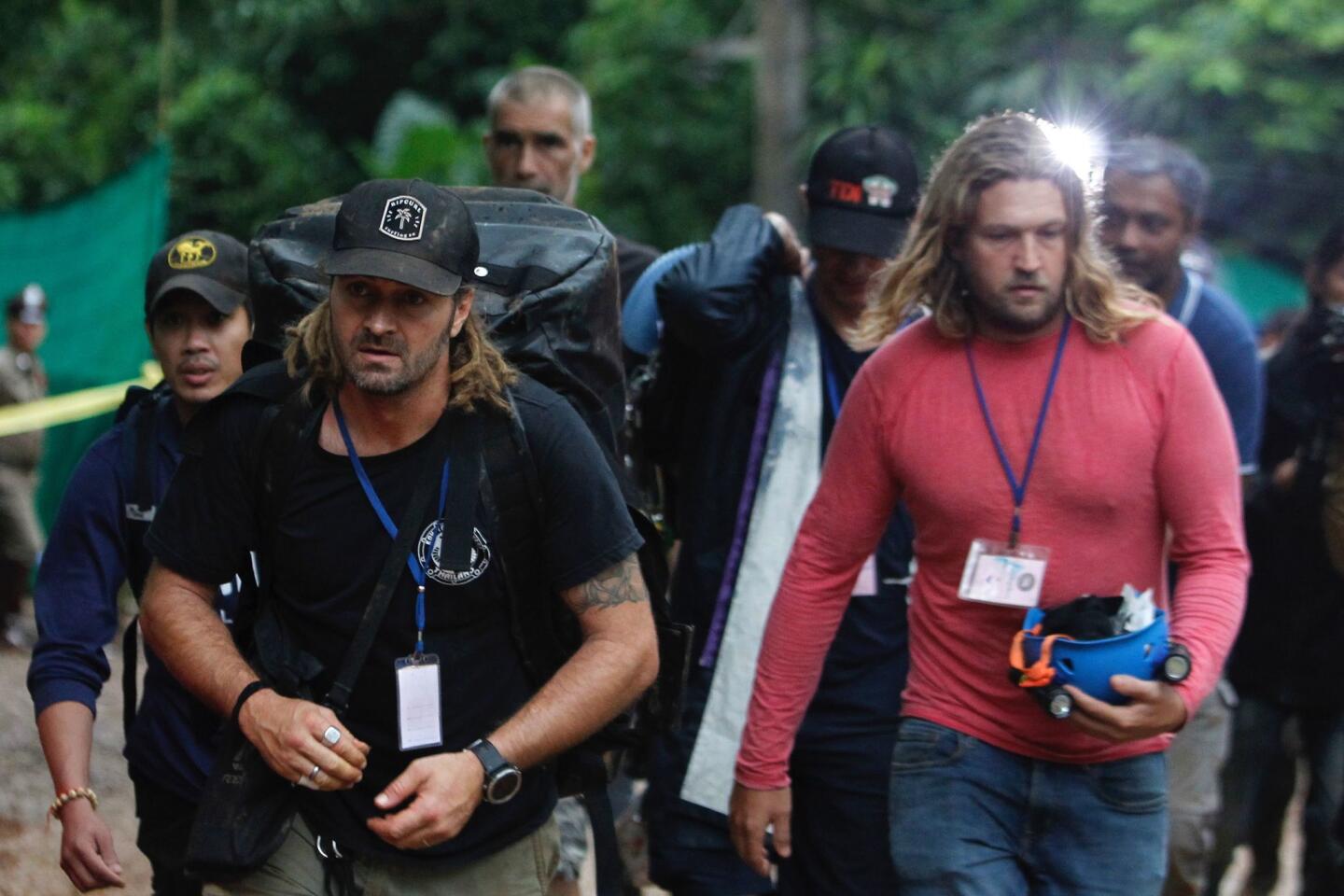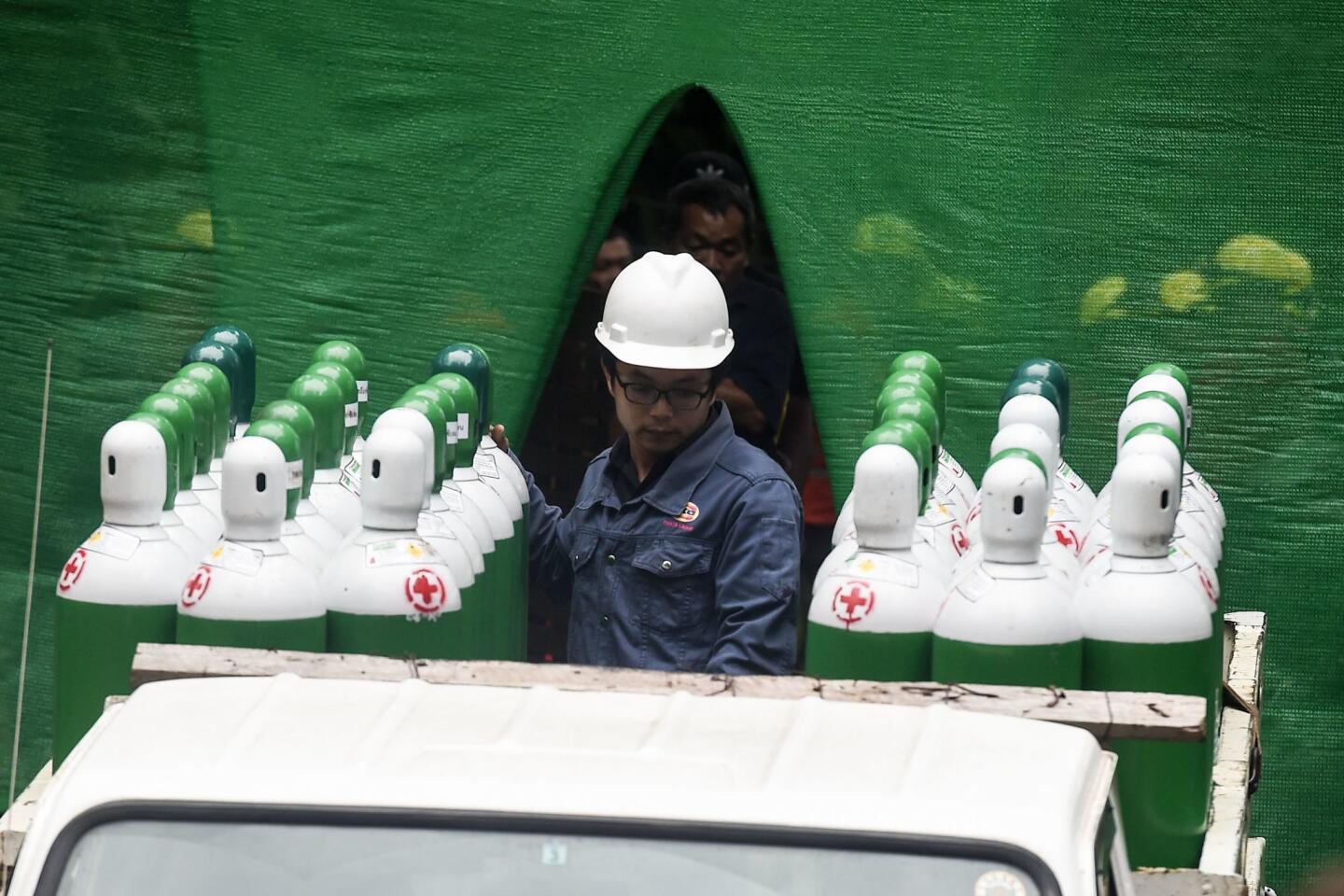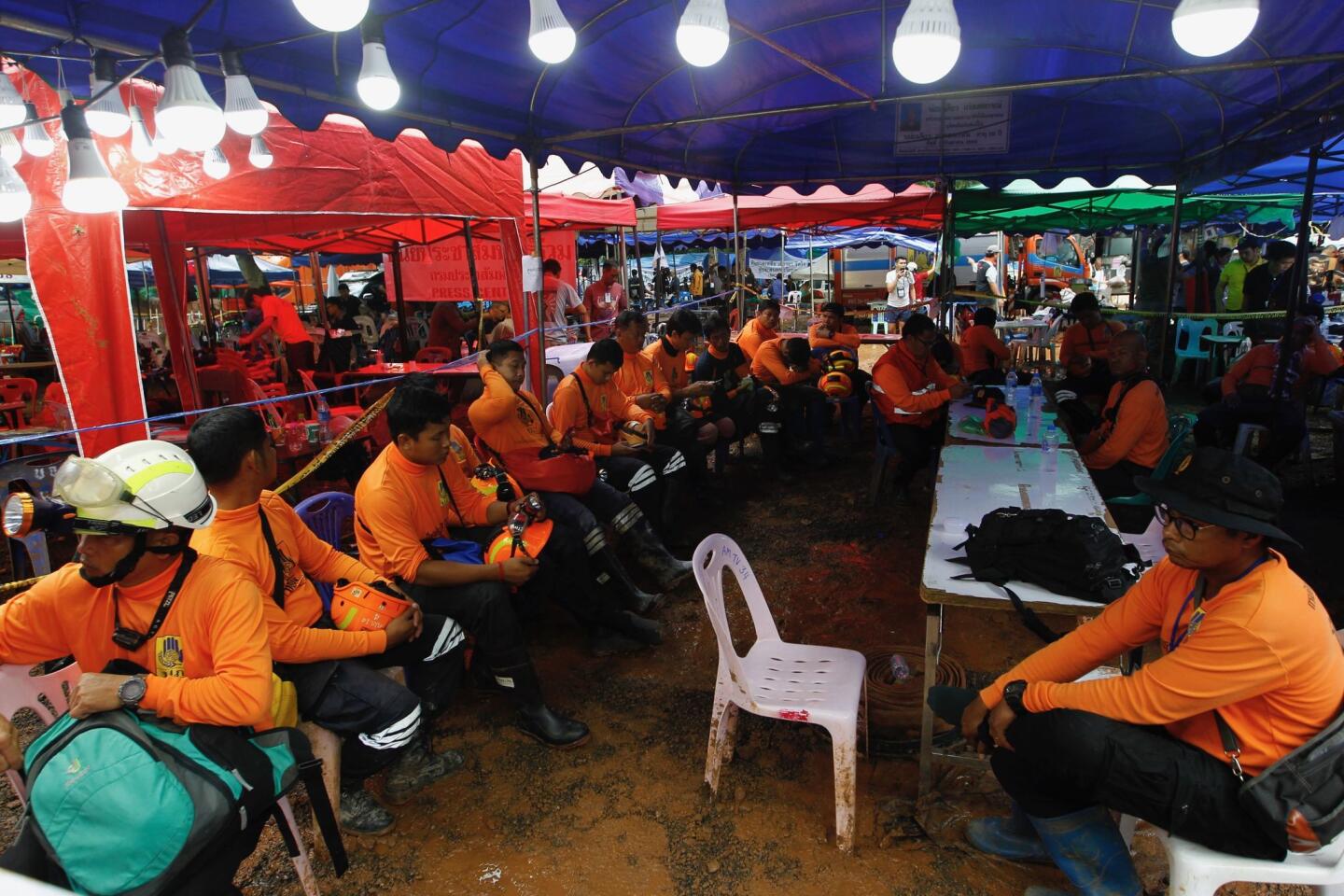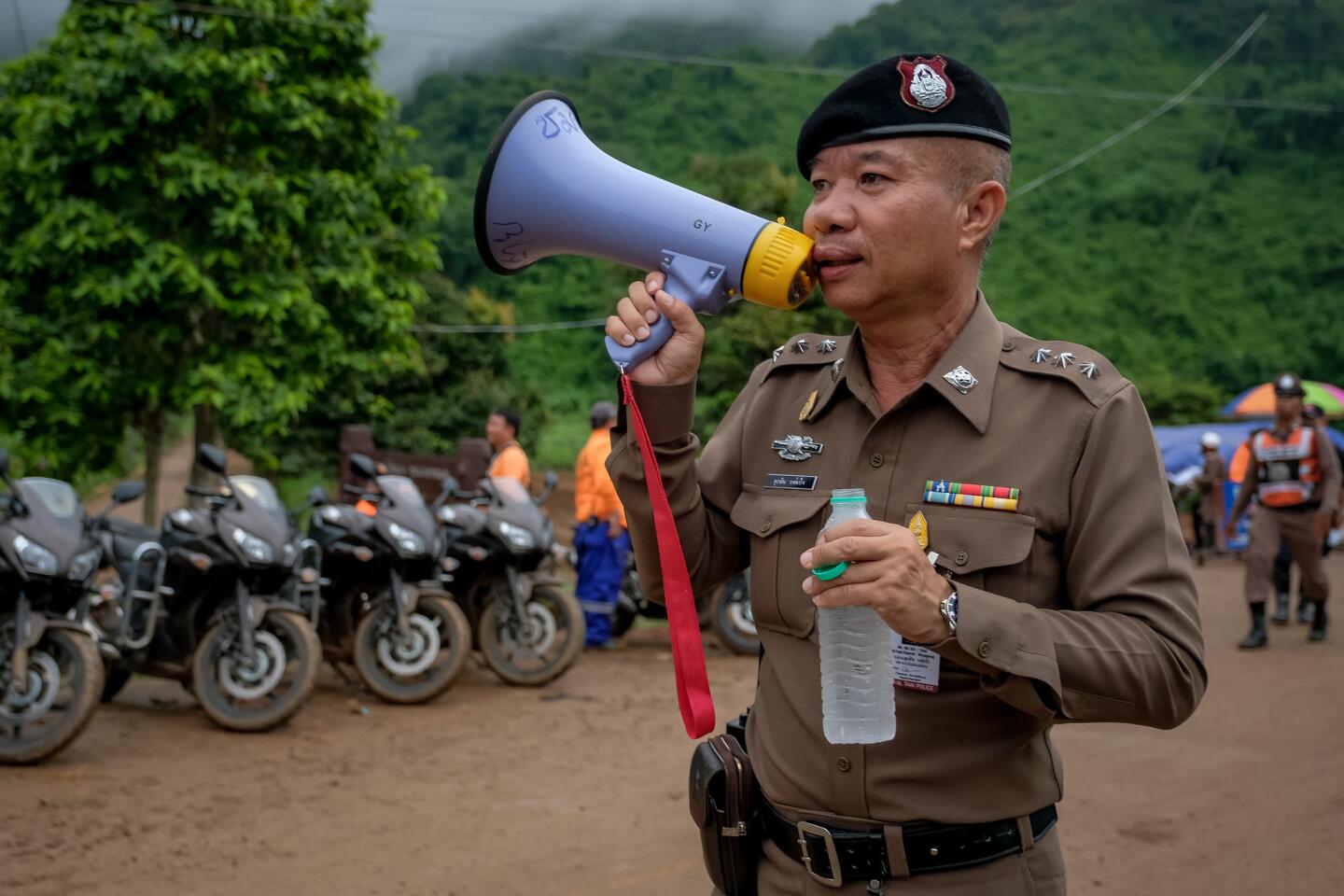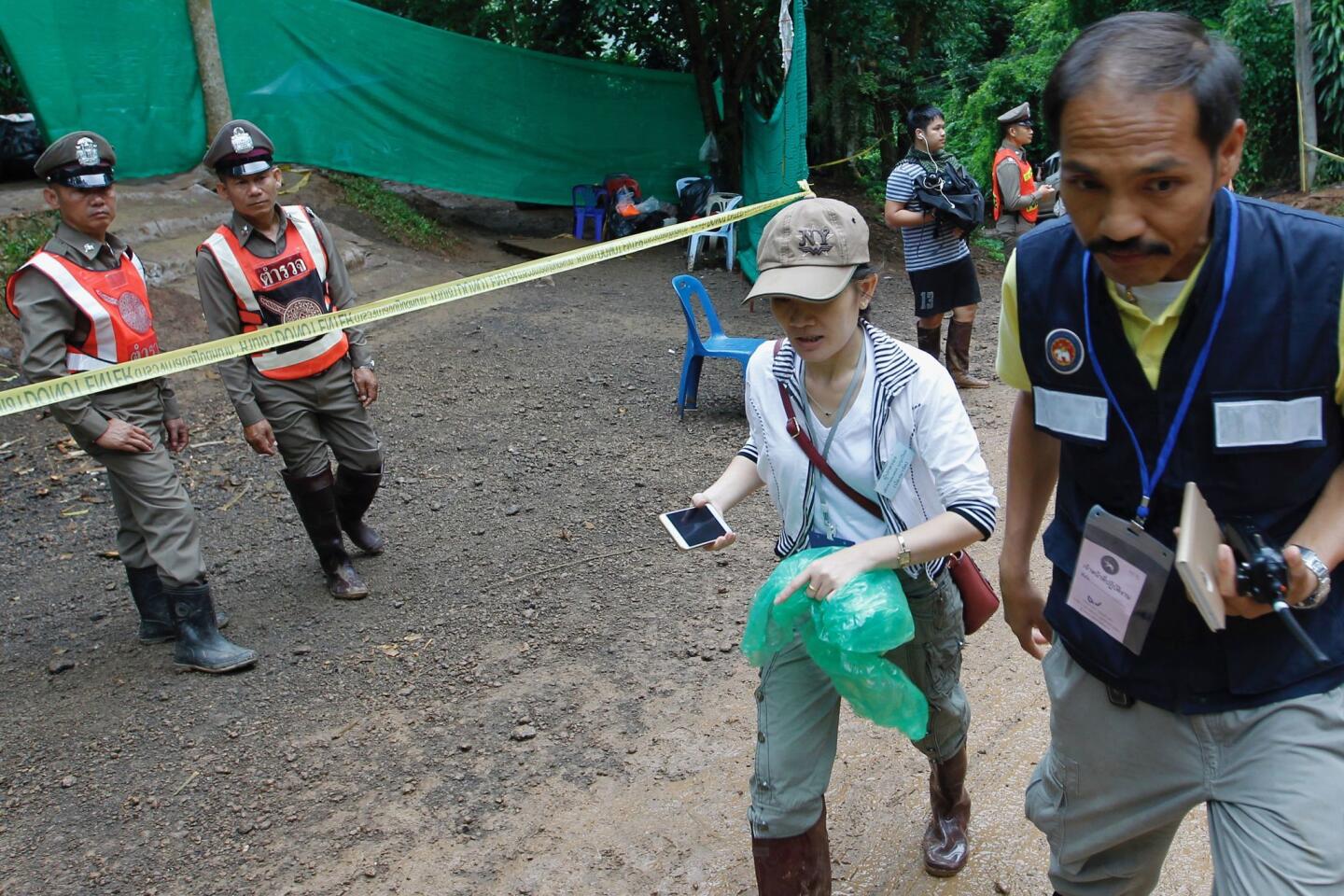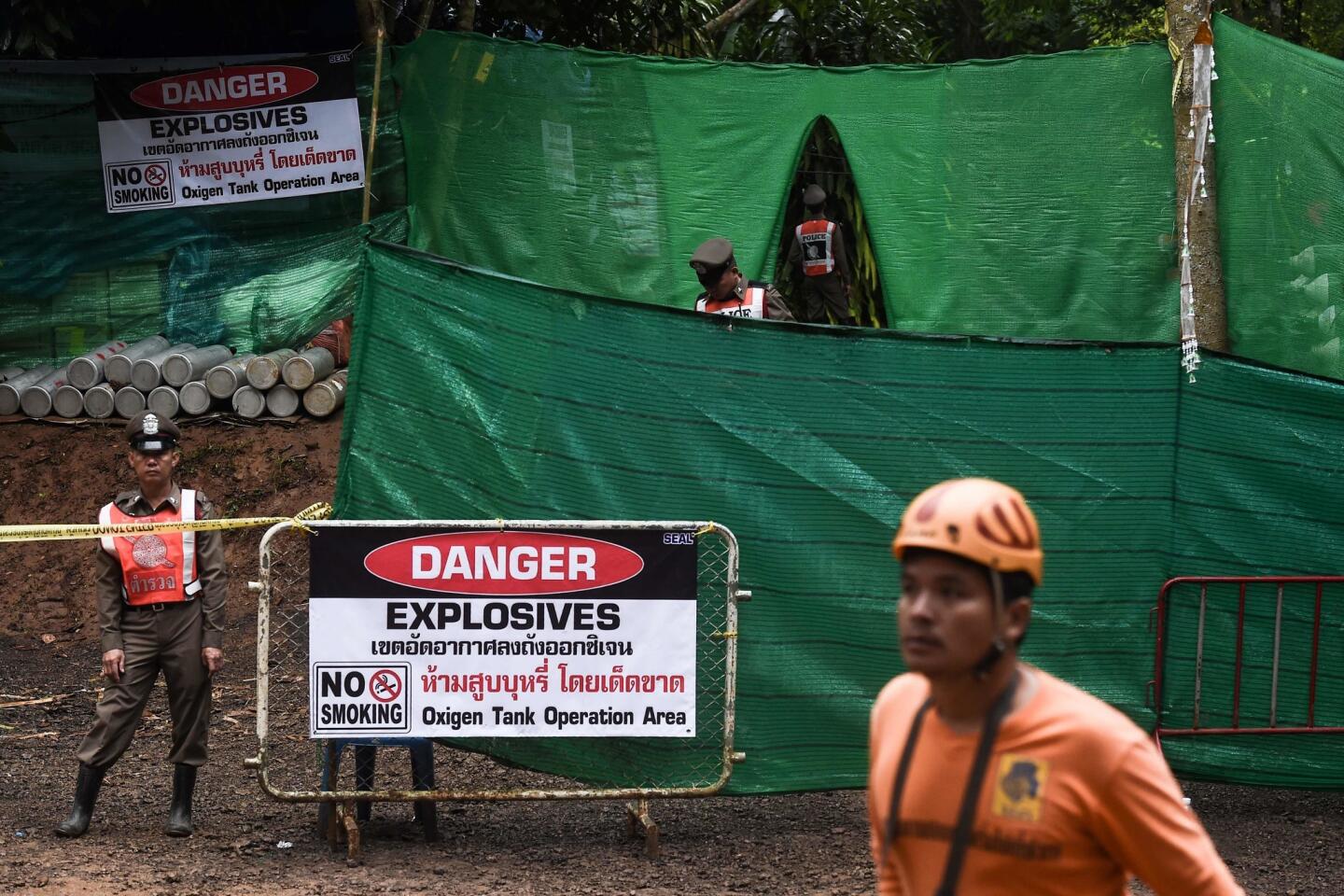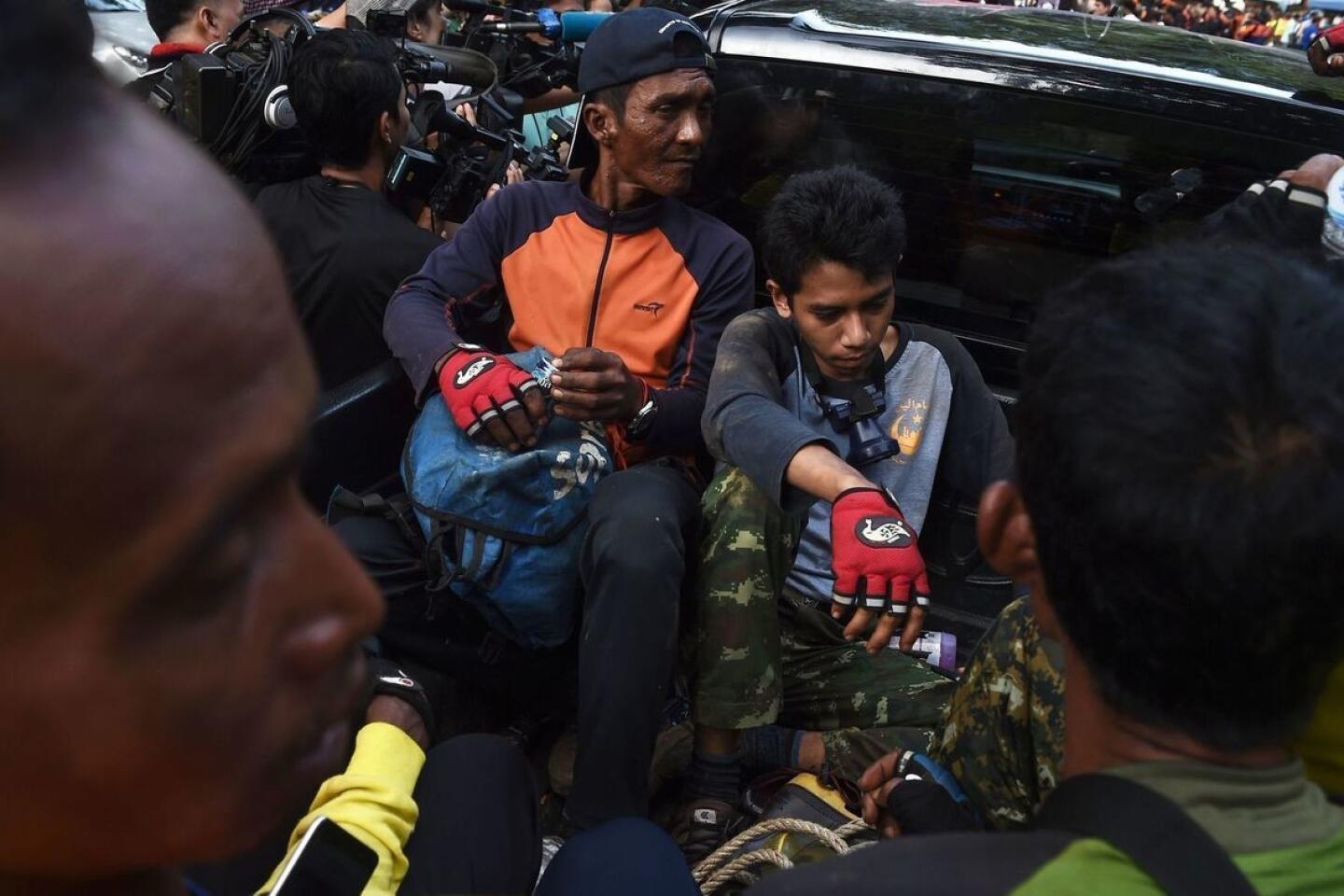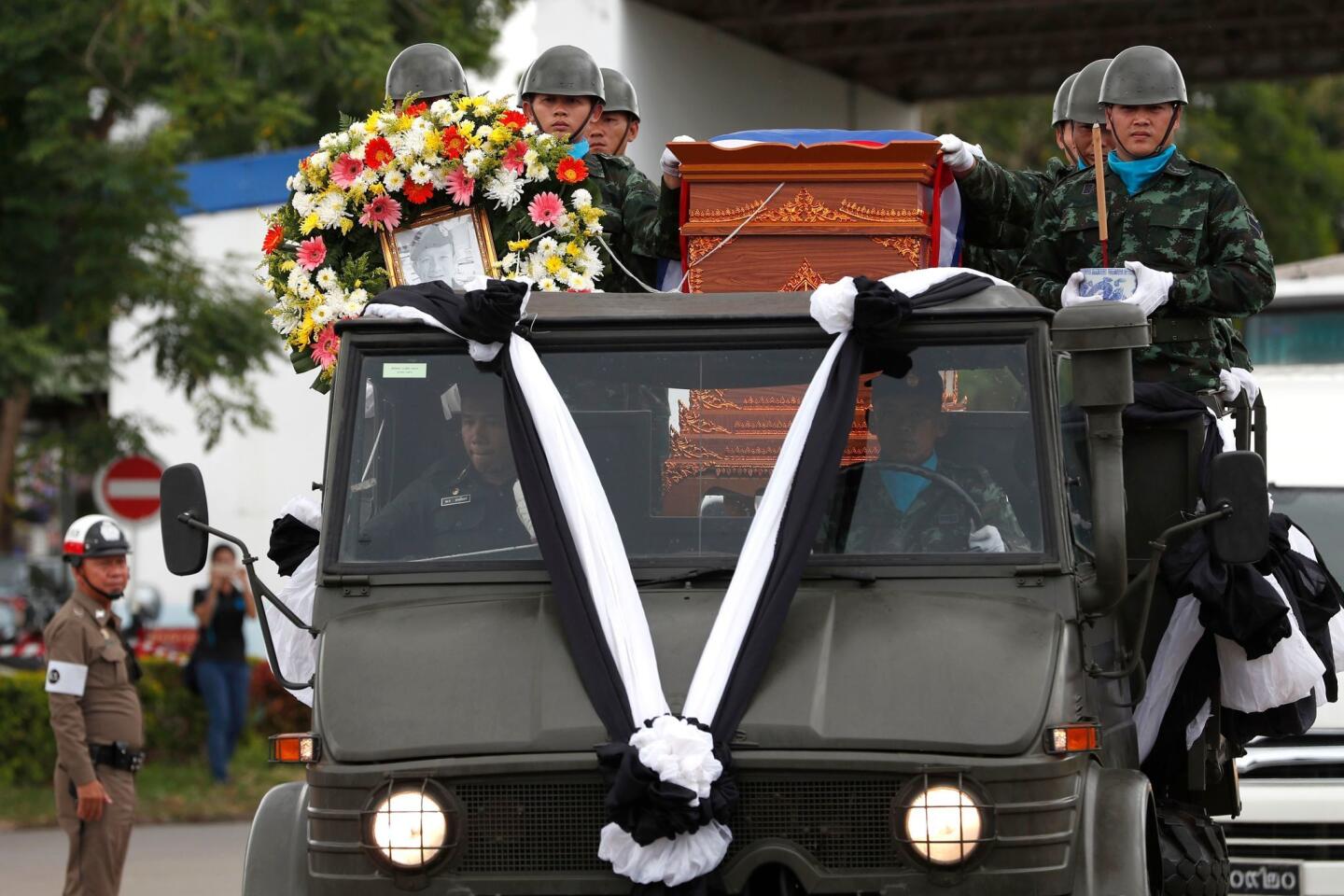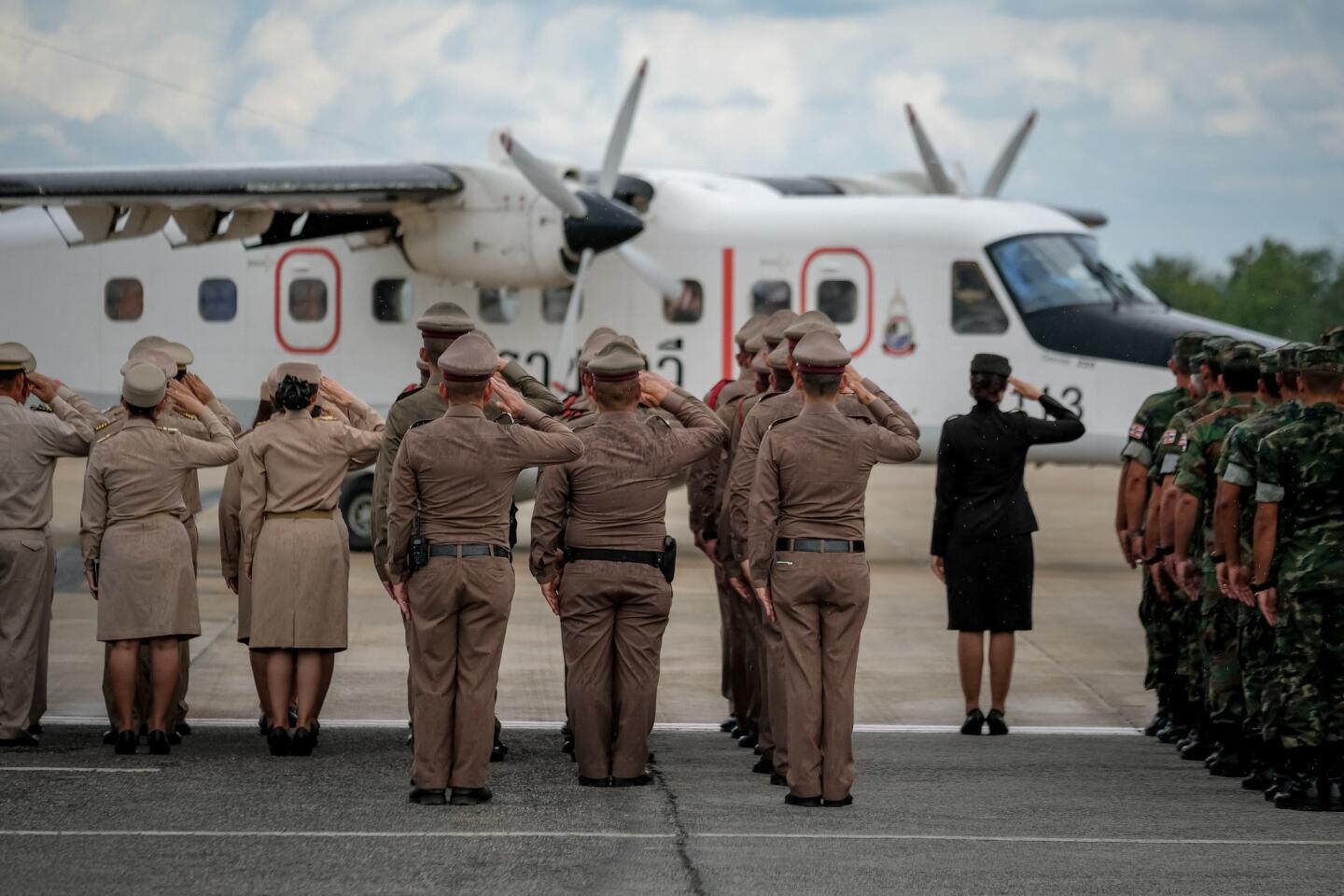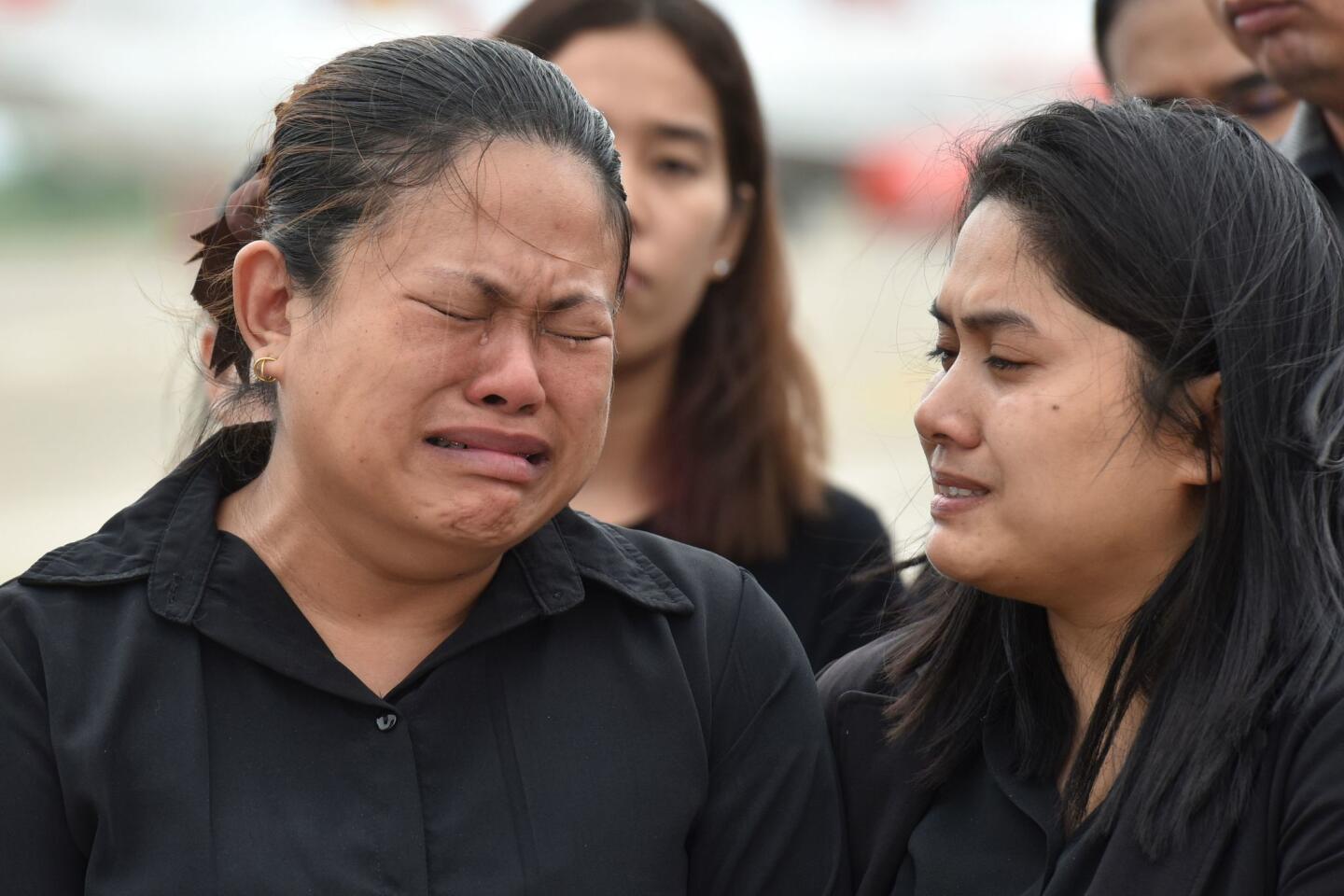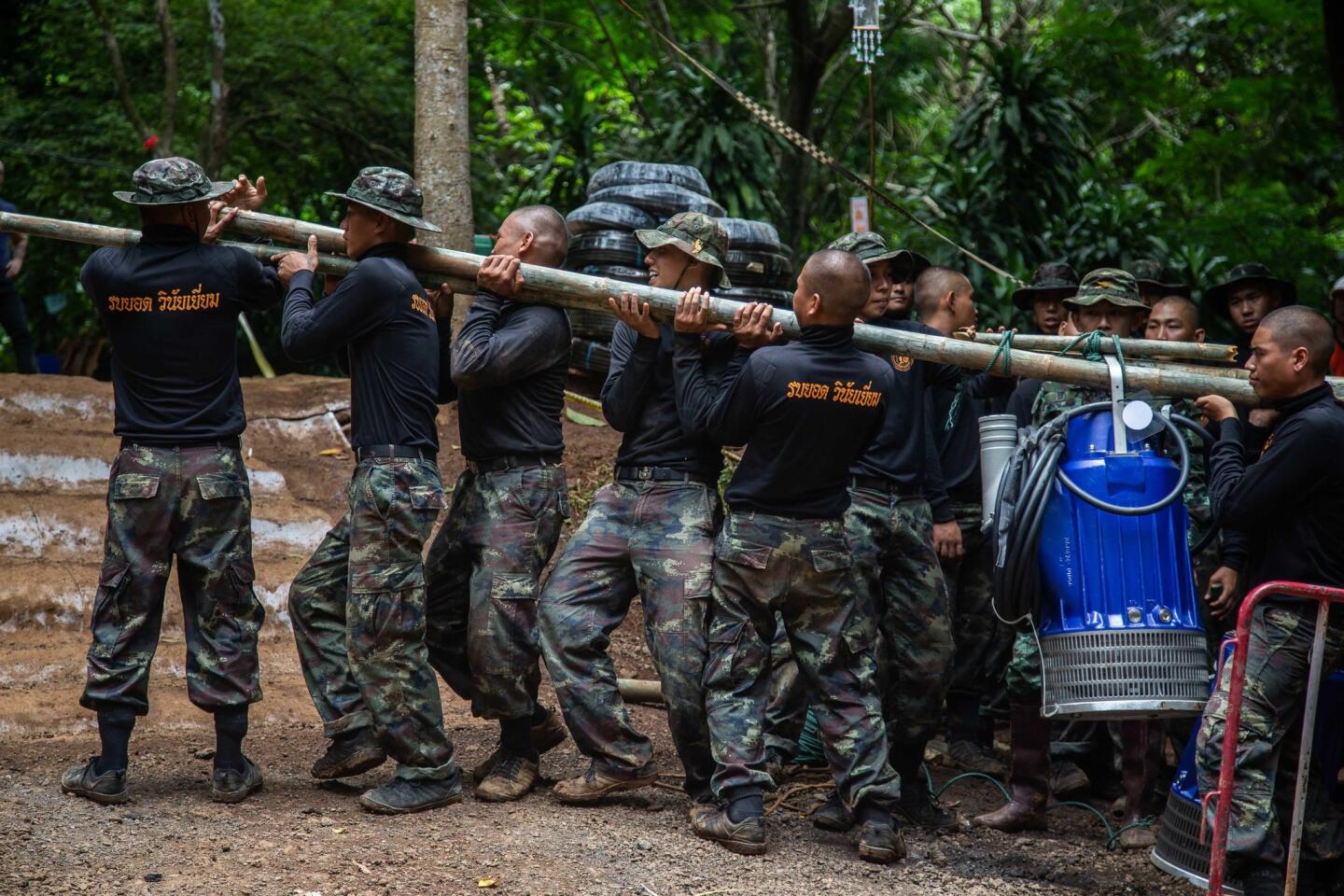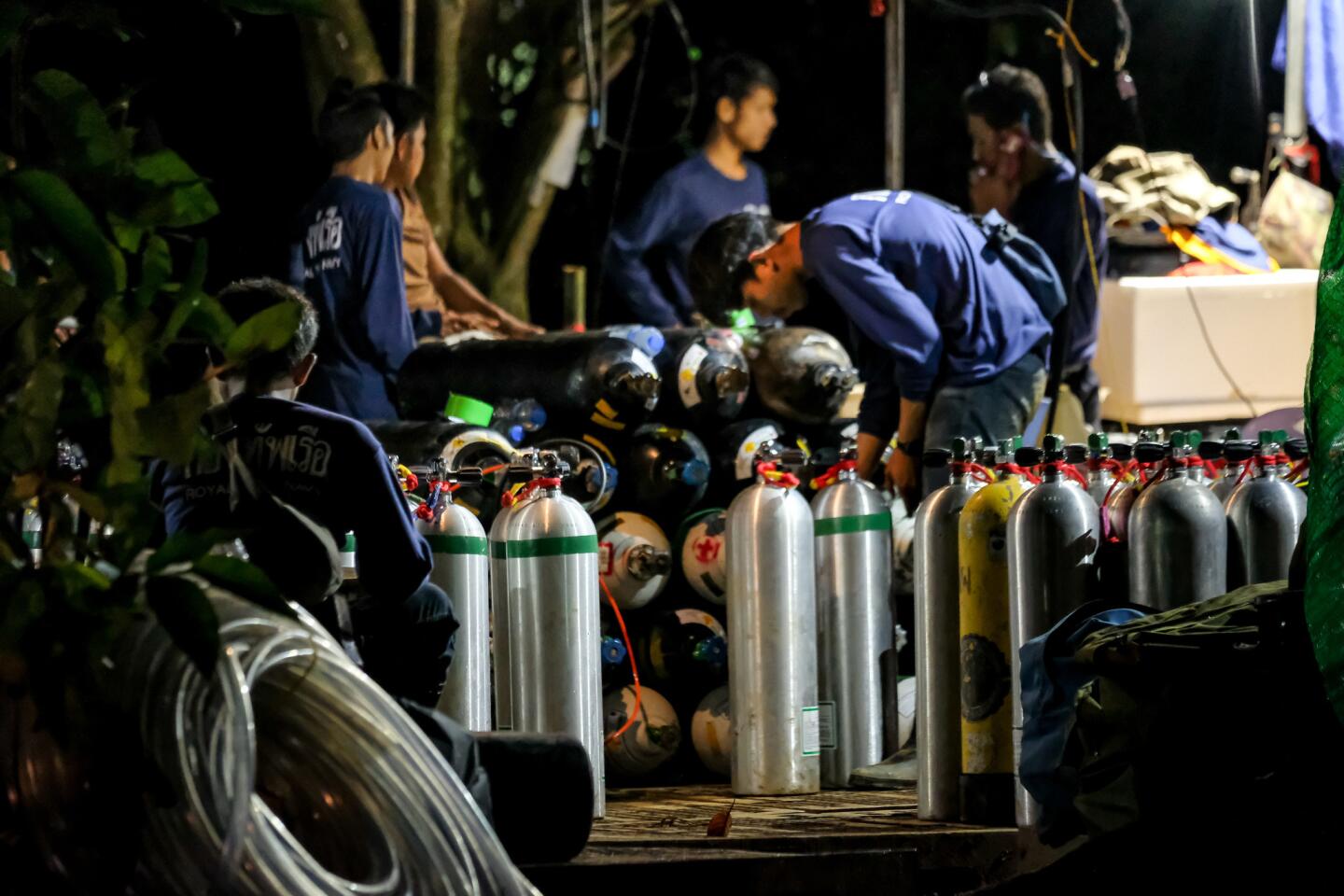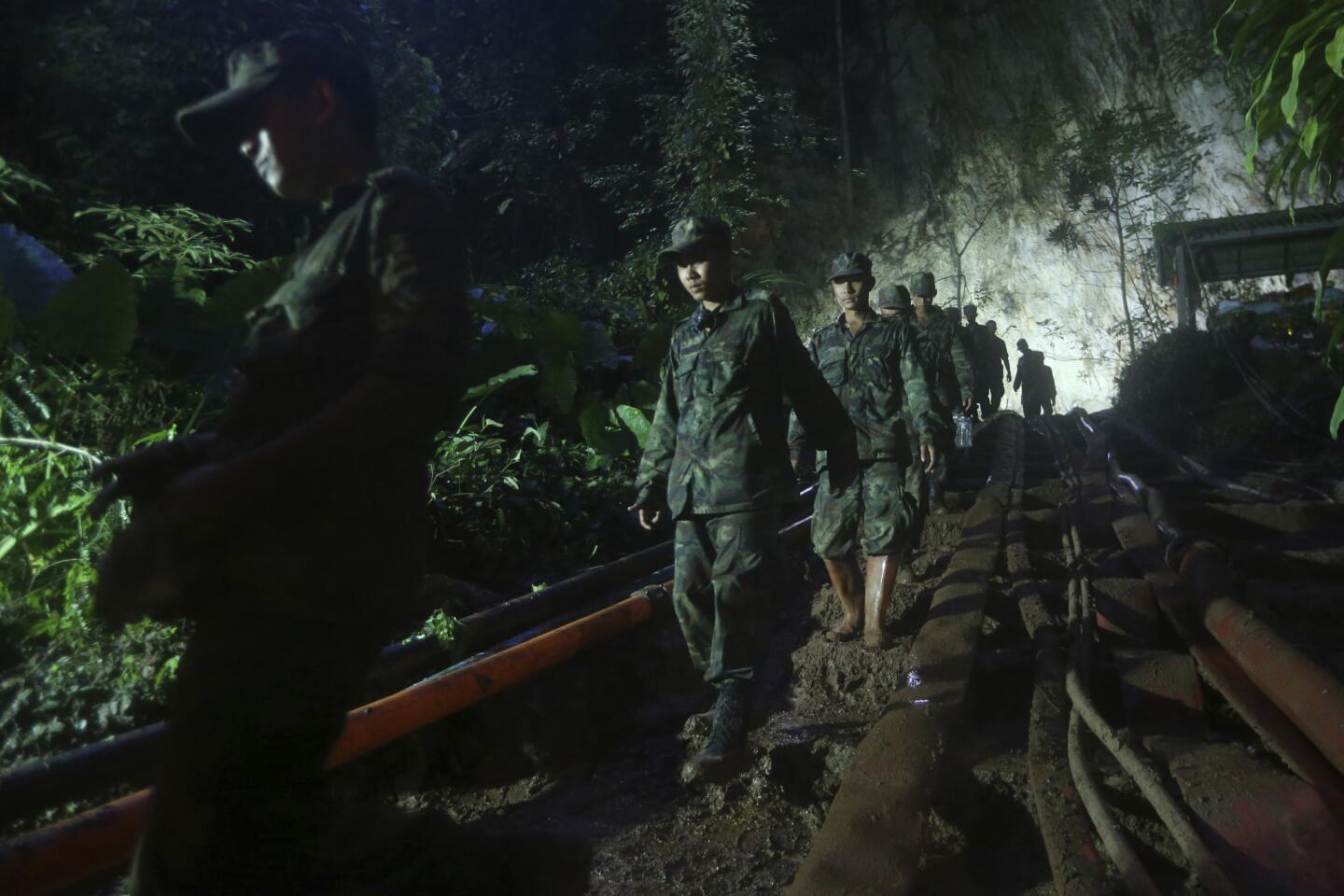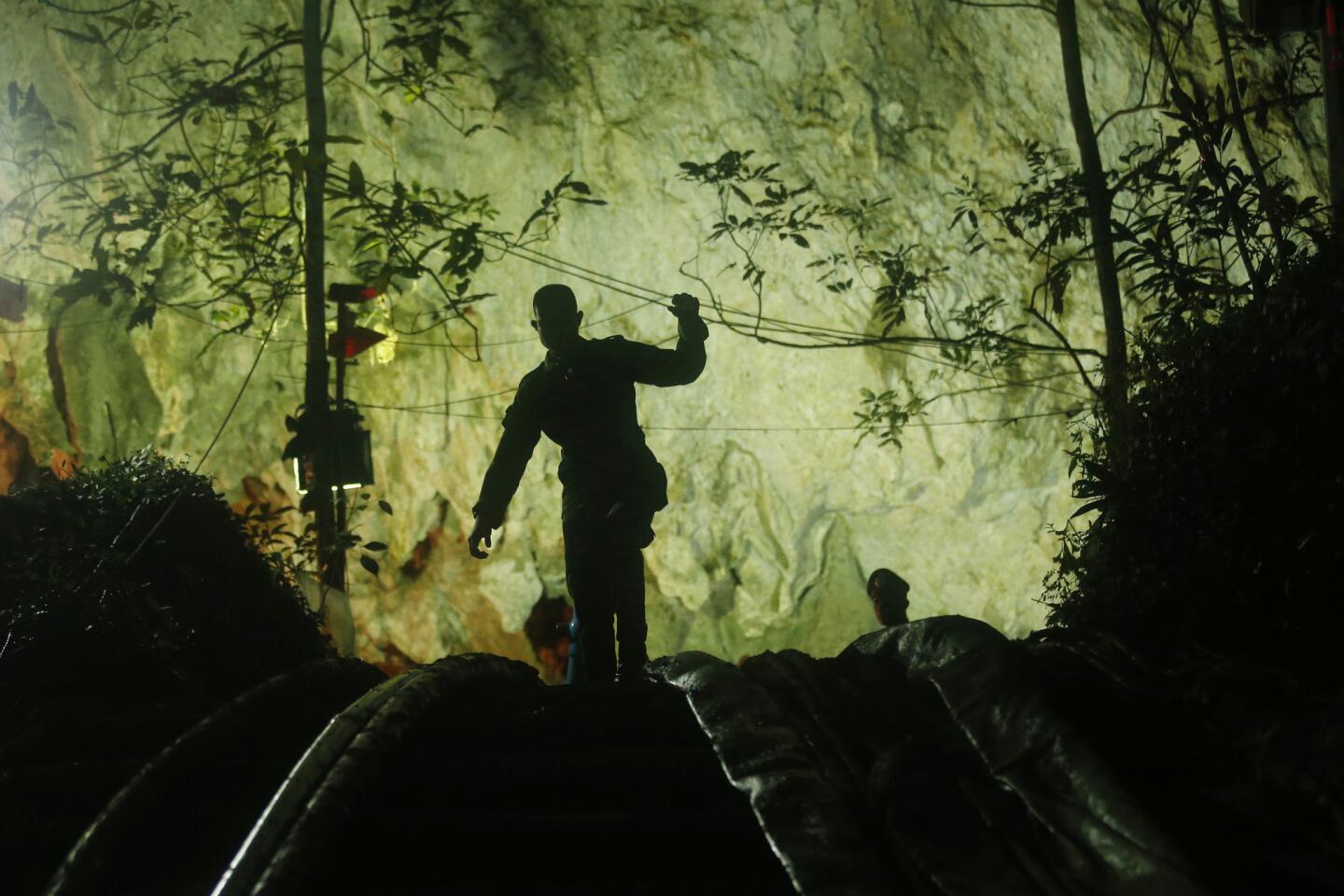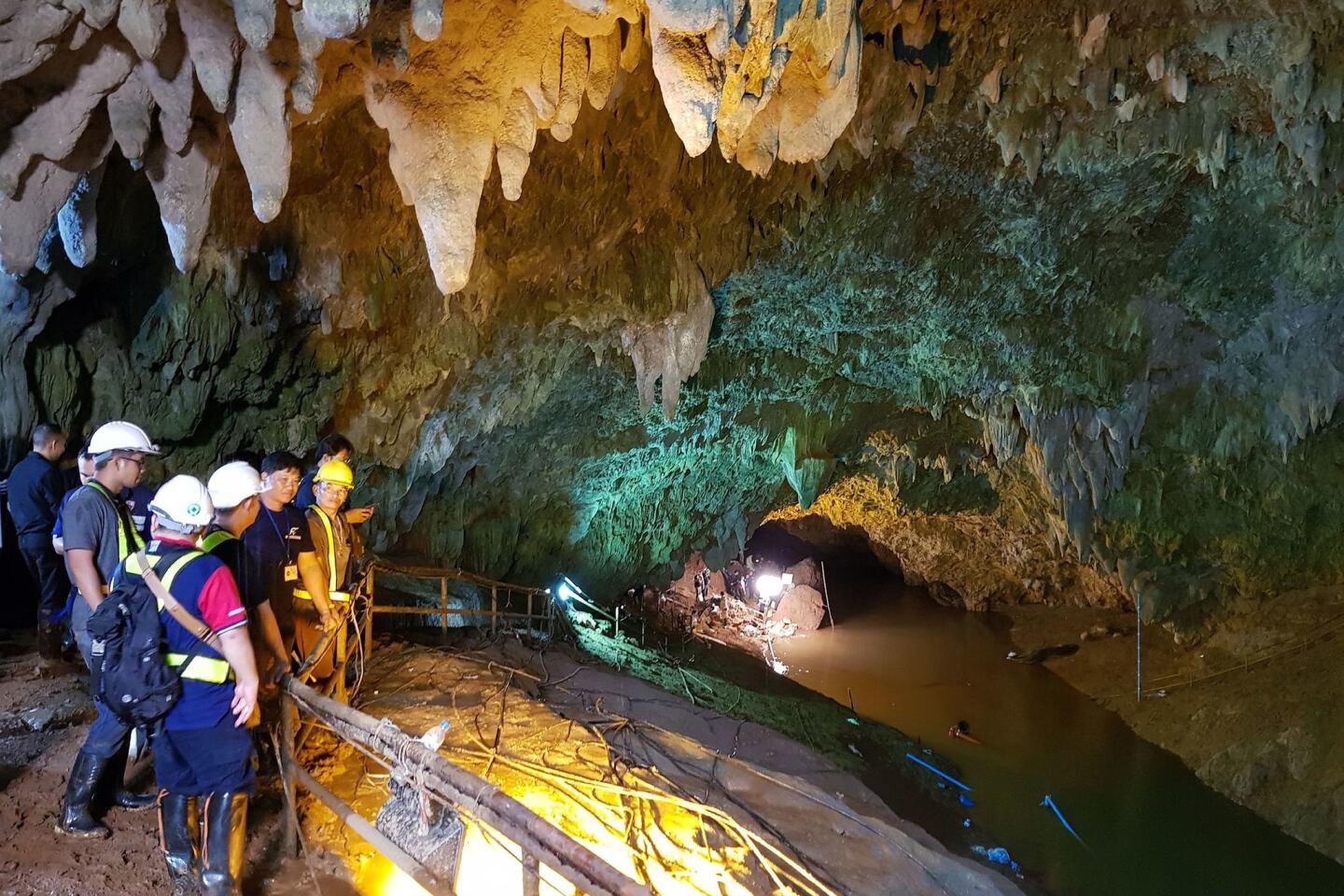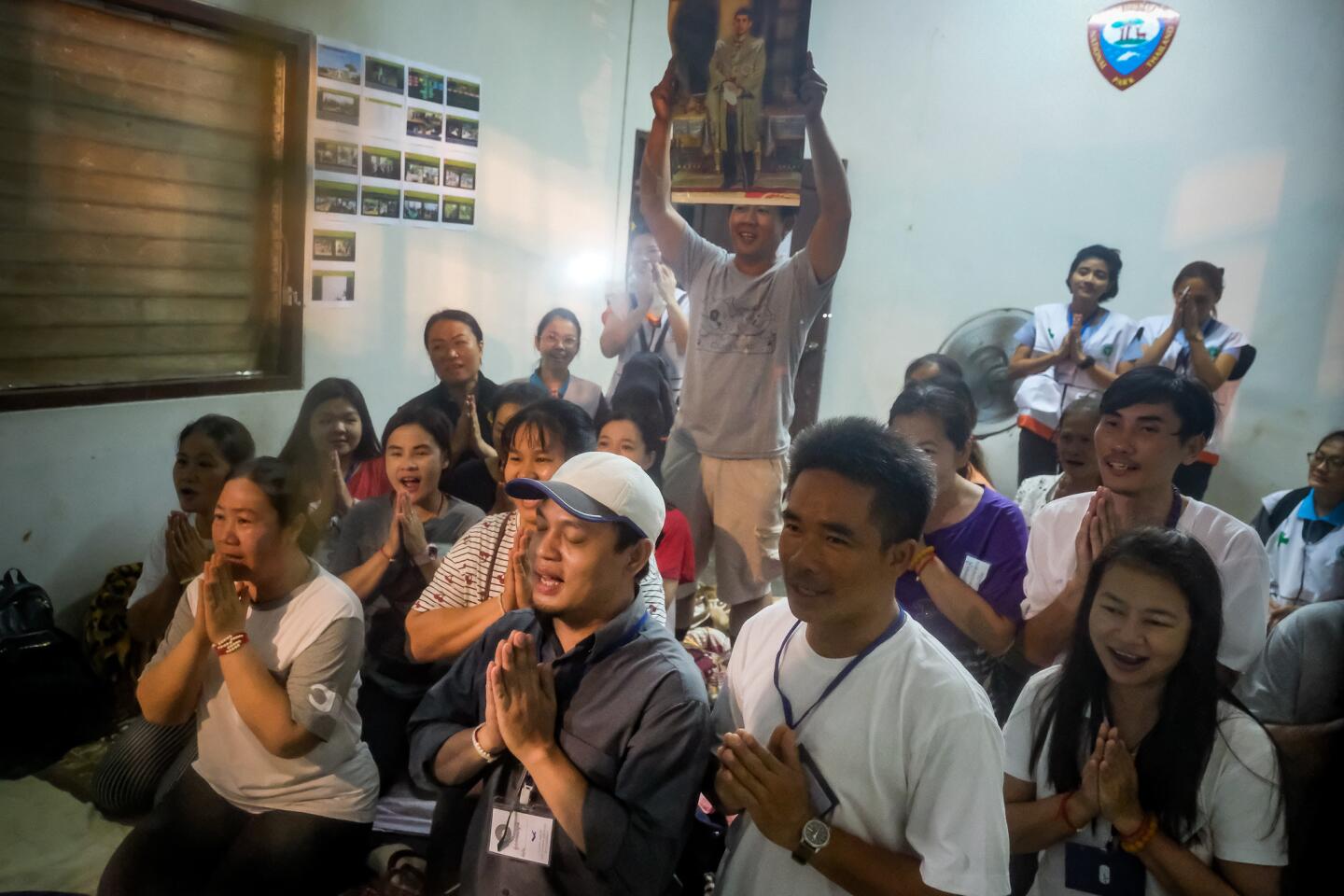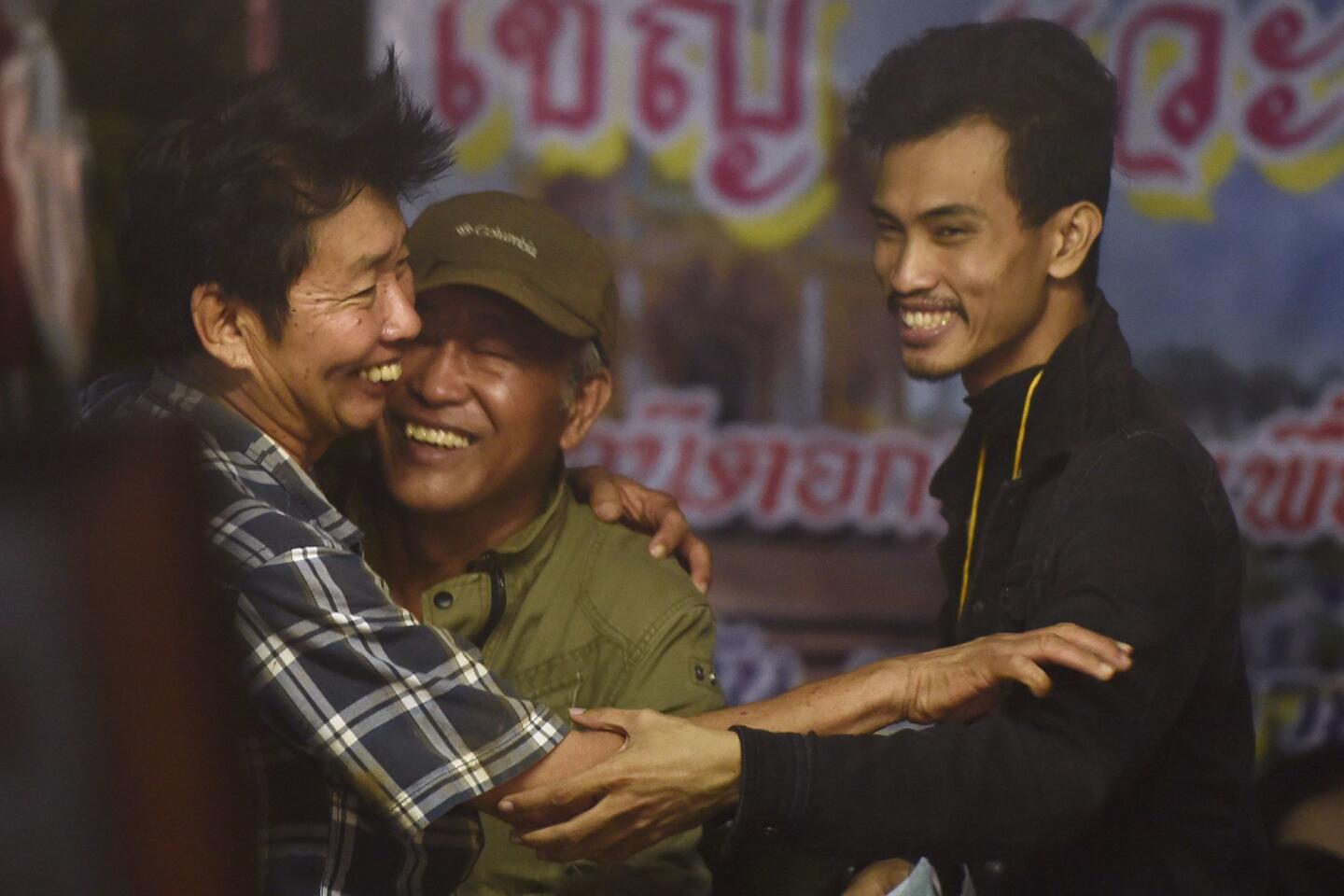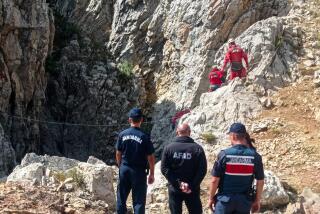Thai boys trapped in cave might have to dive to safety, officials say
Reporting from Mae Sai, Thailand — The 12 boys and their soccer coach survived more than a week without food and water in a partially flooded cave in northern Thailand. Now they might have to dive to safety.
A day after rescue teams found the group alive — skinny and hungry, but in stable health and in impressively good spirits — the focus turned Tuesday to extracting them from the cave while the prospect of further rains threatened to complicate the effort.
Thai officials said it was likely that the boys and their 25-year-old coach would be led to safety by swimming underwater through the dark cave complex, filled with murky waters, that has proved challenging even for experienced rescue divers.
A rotating team of Thai Navy SEALs was stationed with the group and had begun to teach them the basics of underwater diving and would accompany them if they needed to swim out of the Tham Luang Nang Non cave using diving gear, officials said.
The boys, ages 11 to 16, and their coach had also been provided with high-protein gels, water and medical supplies. A Thai official who has spoken to the families said some of the boys do know how to swim.
“As soon as they are physically strong enough and the flood [in the cave] subsides, we will bring them out,” said Passakorn Boonyalak, deputy governor of Chiang Rai province.
“Right now, we think the first option is the best, but it means the group has to swim and dive, and they are practicing as we speak,” the deputy governor said.
The boys were found Monday slightly more than a mile inside the 5-mile-long complex beneath a mountain in rugged Chiang Rai province. They had managed to take shelter on a dry rock ledge and were still wearing their soccer uniforms when two British divers found them, dazed but able to speak a bit of English.
Asked whether they would be leaving the cave immediately, one of the British divers responded, “No, not today,” according to a video released by the Royal Thai Navy.
“There’s two of us,” he said. “You have to dive. We are coming. It’s OK. Many people are coming.”
The discovery capped off an arduous and dramatic search that captivated Thailand for 10 days after the group was reported missing June 23. They had gone exploring in the cave, a popular tourist attraction but one that visitors usually avoid during the rainy season.
International experts from the U.S., Britain and other nations have arrived to assist in the rescue effort. The British Cave Rescue Council, whose members are participating in the operation, said that the current dry conditions were just “a short break” in the summer monsoon rains.
“Although water levels have dropped, the diving conditions remain difficult and any attempt to dive the boys and their coach out will not be taken lightly because there are significant technical challenges and risks to consider,” the group said in a statement.
Officials were also considering other options, including pumping enough water out of the cave complex so that the boys could float out of the cave using life preservers. But with heavy storms forecast for the coming days, officials said it was becoming clear that parts of the labyrinthine complex could not be drained.
Helicopters were also flying above the mountain and attempting to pinpoint the group’s location, estimated to be about half a mile below the surface, in case crews could drill a hole in the earth to pull them out.
“They’re looking at different options right now. I mean a great one would be if you could drill in from the top and take them out like that,” said Bruce Konefe, an American diving instructor who had arrived in Mae Sai.
The British group said drilling would prove extremely challenging because the group is in a relatively small space.
Ben Reymenants, a diving instructor who assisted in the rescue effort, told NBC’s “Today” show that in a worst-case scenario, the boys would have to stay inside the cave for several months because the Thai rainy season usually lasts until October.
“They are very weak and very skinny, and almost unable to walk, so that’s what they are working on now — to give them strength and get them back on their legs,” he said.
Special correspondent Styllis reported from Mae Sai and Times staff writer Bengali from Karachi, Pakistan.
Follow @SBengali on Twitter for more news from South Asia
UPDATES:
4:10 p.m.: This article was updated with staff reporting and additional details.
This article was originally published at 8:10 a.m.
More to Read
Sign up for Essential California
The most important California stories and recommendations in your inbox every morning.
You may occasionally receive promotional content from the Los Angeles Times.
